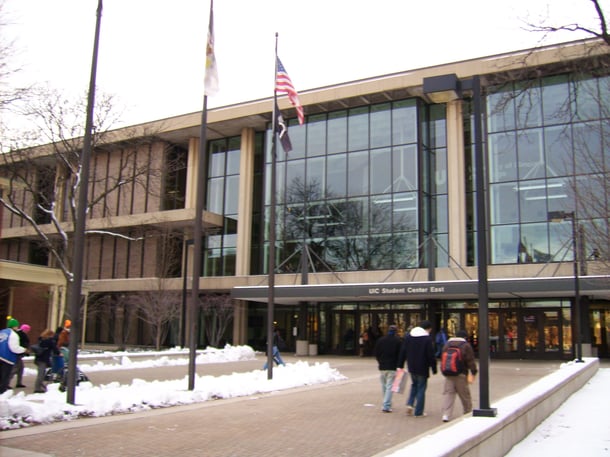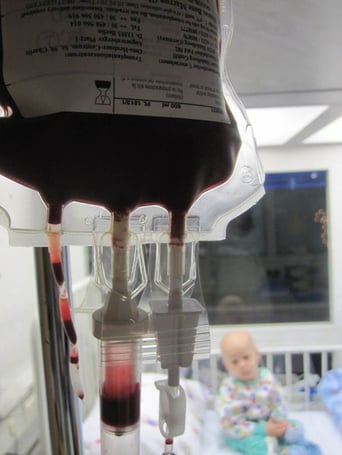According to the American Cancer Society, 1 in 8 American women will develop invasive breast cancer in their lifetime, and each year over 40,000 women die from it. However, thanks to research conducted at the University of Illinois Urbana-Champaign, the number of deaths due to breast cancer may soon be significantly reduced.
Read MoreRecent Posts
Tags: breast cancer research, University of Illinois Urbana-Champaign, cancer research, Cancer Treatment, Cancer, UI Urbana, Midwest Region, UIUC, cancer therapy
A study by University of Arizona ecologists explored how global warming could jeopardize our food supply. In their report, Alice Cang and John Wiens, professor at UA’s Department of Evolutionary Biology, conclude that grasses across the globe may be unable to keep pace with climate change. This will put some of the world's most critical food sources such as wheat, corn, and rice in danger.
Read MoreTags: University of Arizona, Arizona, Biotechnology Vendor Fair, Ecology, biotech vendor show, Southwest Region, UA, Global Warming, Climate Change
In a first of its kind study, researchers at UCLA utilized ultrasound to “jump start” the brain of a man with severe brain injury who was recovering from a coma. According to the UCLA Newsroom, the 25 year old man could only perform small, limited movements when instructed and “showed minimal signs of consciousness” before the procedure. Three days after the treatment, he regained full consciousness and language comprehension. He could reliably communicate by shaking or nodding his head. Five days after, the patient attempted to walk for the first time since the coma.
Read MoreTags: University of California Los Angeles, biomedical research, brain research, UCLA, UCLA research funding, Dana foundation, Tiny Blue Dot Foundation, Dr. Martin Monti
The National Institute of Health awarded a five year, $7 million grant to Dr. Monica Kraft at the University of Arizona College of Medicine – Tucson. The funding will support a research study titled, “Dysfunction of Innate Immunity in Asthma,” which will seek to improve our understanding of mediators that help control lung inflammation. This in turn may lead to improved therapies for reducing severe asthma attacks.
Read MoreTags: biomedical research, Biotech Event, UAZ, Research Funding, NIH grant, University of Arizona Tucson, UA, Asthma research, BioResearch Product Faire™
Over the last 40 years incidence of Autism Spectrum Disorder (ASD) have increased tenfold. Until recently, the cause of autism was a complete mystery. Now a major discovery at UCLA has just brought researchers one step closer to unlocking the mystery of ASD.
The UCLA study found distinctive changes in the levels of tiny regulator molecules known as microRNAs in the brains of people with ASD. These microRNAs control the activities of large gene networks. This finding helps explain why so many genes are abnormal in autism disorders. It could also lead to targeted treatments or preventative measures someday.
Read MoreTags: University of California Los Angeles, Biotech Event, UCLA, biomedical researh, autism research, mircoRNA, Dr. Daniel Geschwind

(Image courtesy of Wikimedia commons)
The National Institutes of Health (NIH) awarded a four year, $17.7 million grant to the university of Illinois at Chicago’s Center for Clinical and Transitional Science to further translational research.
Read MoreTags: University of Illinois, University of Illinois Chicago, Translational Research, University of Illinois at Chicago, Chicago, biotech vendor show, NIH award, UI Chicago, UIC, UIChgo, University of Illiniois, 2016, Bioresearch Grant
Researchers at the Columbia University Medical Center (CUMC) may have found a way to reduce brain damage caused by a stroke or stroke-like event. In a study funded by the National Heart, Lung, and Blood Institute and the National Institute of Neurological Disorders and Stroke, 10-day-old mice that had an hypoxic (lack of oxygen) or ischemic (lack of blood) brain injury were treated with a fat emulsion containing either DHA or EPA—omega-3 fatty acids. The researchers evaluated the mice’s neurological function 24 hours and 8 to 9 weeks after the brain injury. They discovered that the mice treated with the DHA omega-3 fatty acids had a significant reduction in brain injury. This did not hold true for those treated with EPA-omega 3. The DHA group also had significantly better results in multiple brain functions during the 8 and 9 weeks evaluation compared to the EPA-treated mice and the control group which went untreated.
Read MoreTags: BioResearch Trade Show, New York, Columbia University, Columbia, NY, New York City, Columbia University Medical Center, biomedical researh, stroke, stroke research, DHA omega-3 fatty acids
Over 6 million cosmetic surgery procedures are done each year using Botox, a form of the botulinum toxin. However, besides reducing wrinkles, botulinum toxins are used to treat over 20 medical conditions. These include severe neck and shoulder muscle spasms, chronic migraines, excessive sweating, leaky or over active bladders, facial spasms, and Cerebral Palsy. Botulinum toxins are also quite deadly. In fact, one gram--the equivalent to ¼ teaspoon of sugar--could kill over a million people.
Read MoreTags: UW, Wisconsin, University of Wisconsin, University of Wisconsin Madison, UWisc, UW Madison, Biotechnology Vendor Fair, Madison, BioResearch Fair, Bioreseach, 2016, wisconsin science trade fair, University of Wisconsin School of Medicine, Botox, botulinum
The University of Illinois at Chicago received a two-year, $475,000 grant to study a new treatment for type 1 diabetes that might help protect the pancreas. This promising new treatment would involve using two protein molecules to reduce the damage caused by the body’s autoimmune response. The research led by Dr. Bellur S. Prabhaker, Professor of Microbiology and Immunology at UIC, could eventually free many diabetes patients from the rigors of daily insulin injections.
Read MoreTags: Bioresearch, Bioresearch funding, University of Illinois, University of Illinois Chicago, Diabetes, Illinois, University of Illinois at Chicago, Chicago, biotech vendor show, UIC, UIChgo, 2016, Dr. Prabhakar, Diabetes research

(Image courtesy of Wikimedia Commons)
Finding matching donors for patients who need bone marrow transplants can be challenging. For ethnic minorities the chances of finding an unrelated donor who is a match through the national donor registry is less than 35 percent. However, thanks to a three year, $600,000 grant from the Leukemia and Lymphoma Society researchers and physicians at the University of Arizona-Tucson are hoping to improve the odds of survival for those patients. This new research funding will be used to support ongoing biomedical research at the UA Steele Children’s Research Center into improving haploidentical bone marrow transplantations (haplo-BMT) as well as launching clinical trials at the UA Cancer Center.
Read MoreTags: Biomedical Reearch, University of Arizona Tucson, UA, research grants, BioResearch Fair, Bone marrow transplants

